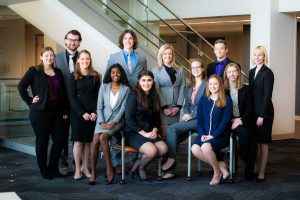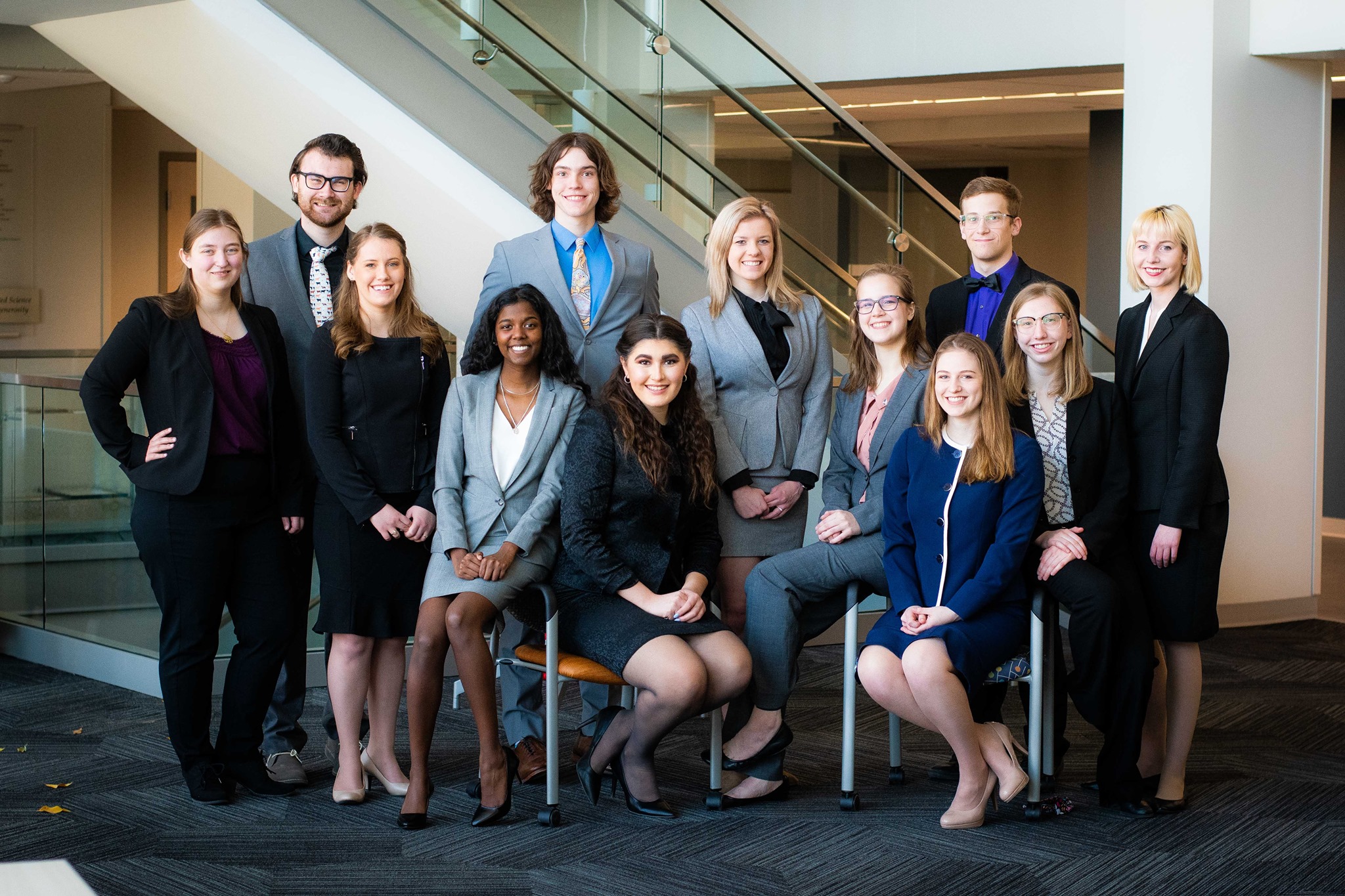Josephine Nuñez sits in anticipation as the next speaker is called. Being the fifth speaker in her informative round at the “Hell Froze Over” collegiate speech tournament, she has waited for almost 40 minutes to give her speech. When her name is called, she smiles, and confidently walks to the front of the room.
Looking into the camera of her laptop, she asks, “Can everyone see and hear me okay?”
While sporting events were canceled and other extracurriculars cracked down on mask mandates and social distancing, the collegiate speech community adjusted to a completely new platform for tournaments. Rather than traveling around the country for tournaments every weekend, Nuñez competed at her own school, in the comfort of classrooms she attends class in.

A senior theatre major at Concordia College in Moorhead, Nuñez faced her final speech season that was unlike any speech season before. Tournaments were held over platforms like Zoom, Yaatly and Jitsi. Rounds that were once full of student speakers were replaced with five to seven little black boxes.
“Initially, I thought, ‘How is this going to work?’ I was really terrified,” she said.
At the beginning of the season, Nuñez was concerned that her own speeches, which span the range of dramatic interpretation events to written speeches with a purpose to inform, would come across as less powerful. With the need to have cameras off during tournaments due to interference with the performers’ own audio and visual appearance, it’s no surprise that audience disengagement occurs. For Nuñez, having a connection to her audience is crucial to her performance.
“I feed off of audience energy,” she said.
Despite Nuñez’s uncertainty, teammate Naarah Neumann praised her leadership and performance within the speech community.
“She just seems to know what she’s doing,” Neumann said.
But with audience disengagement comes Nuñez’s own lack of connection to other speakers. Typically, speakers build relationships with other speakers in their category after seeing their speeches and running into them during in-person tournaments. However, Nuñez explains that this isn’t the case for online tournaments. She said that in her own rounds, she tends to tune out speakers since most tournaments do not require cameras to be on while listening to speeches.
Recognizing her own lack of attention during rounds, Nuñez was plagued with doubts about whether people were listening to her.
“I genuinely feel confident almost every time I perform,” Nuñez said. But because she relies on audience energy to propel her performance, it was hard to hold back doubtful thoughts.
Nuñez did touch on some positives the online season has brought. As a theatre major — hoping to continue her love for performing through graduate school and her career — performing for the camera is an immensely beneficial experience.
Nuñez has had the opportunity to work with people outside the three coaches employed by Concordia College, such as communications expert Steve Rohr. Rohr, show publicist for the Academy Awards and regular contributor to Backstage magazine, has given Nuñez the chance to prepare herself for her future career goals. She explains that working with Rohr has not only helped develop her skills as a speaker, but as an aspiring Hollywood performer.
What Nuñez says was the worst part of an online speech season, though, was her lack of connection to her teammates. “I don’t get to be as close to my teammates as I would like to be,” she said.
Nuñez says that team bonding is one of the most important attributes of a team dynamic, and that missing out on that experience was devastating.
“I still don’t know a lot about the first-years because I’m not seeing them as often,” she said. Her first year of college was a social one — she made friends almost immediately. However, she expresses concern for the first-year students on the team because they aren’t able to make those connections.
Neumann, however, says Nuñez has made a good effort to connect the team. When the Concordia dining services put on an early Thanksgiving dinner, Neumann and Nuñez went to eat together. “She’s done good with integrating a sense of community,” says Neumann.
Nuñez is proud of what her team did to help keep team members connected as well. At every tournament, the team made a point to support the success of students through text messages, and ensured that warm-ups occur in-person (socially distanced and masked). However, congratulatory text messages and distanced warm-ups are not the same experience as being able to hug teammates when they make it to the final round of their category or walking a nervous teammate to the room that their round is in, Nuñez said.
In fact, Neumann holds the same views on relying on the team group-chat to congratulate team members. “It’s strange because we’re all just shouting at each other in the group-chat,” she said.
While Nuñez’s senior year of speech is not what she had hoped it would be, being able to come together in an important, empowering activity has been especially helpful in combating the effects the pandemic has on everyone’s daily lives.
“We’ve done a really good job of coming together as a team despite everything that’s happening,” Nuñez said. “I guess that’s just how it goes for any activity you have a passion for.”
Nuñez finished out her senior season as a qaurterfinalist in Informative Speaking, Dramatic Interpretation and Prose Interpretation at the American Forensics Association National Speech Tournament. Cobber Speech was ranked 17th in the nation.

